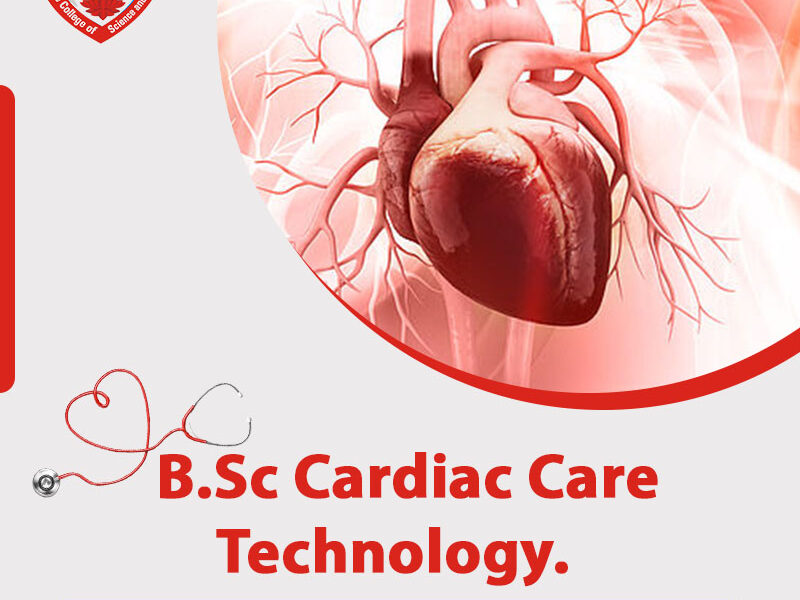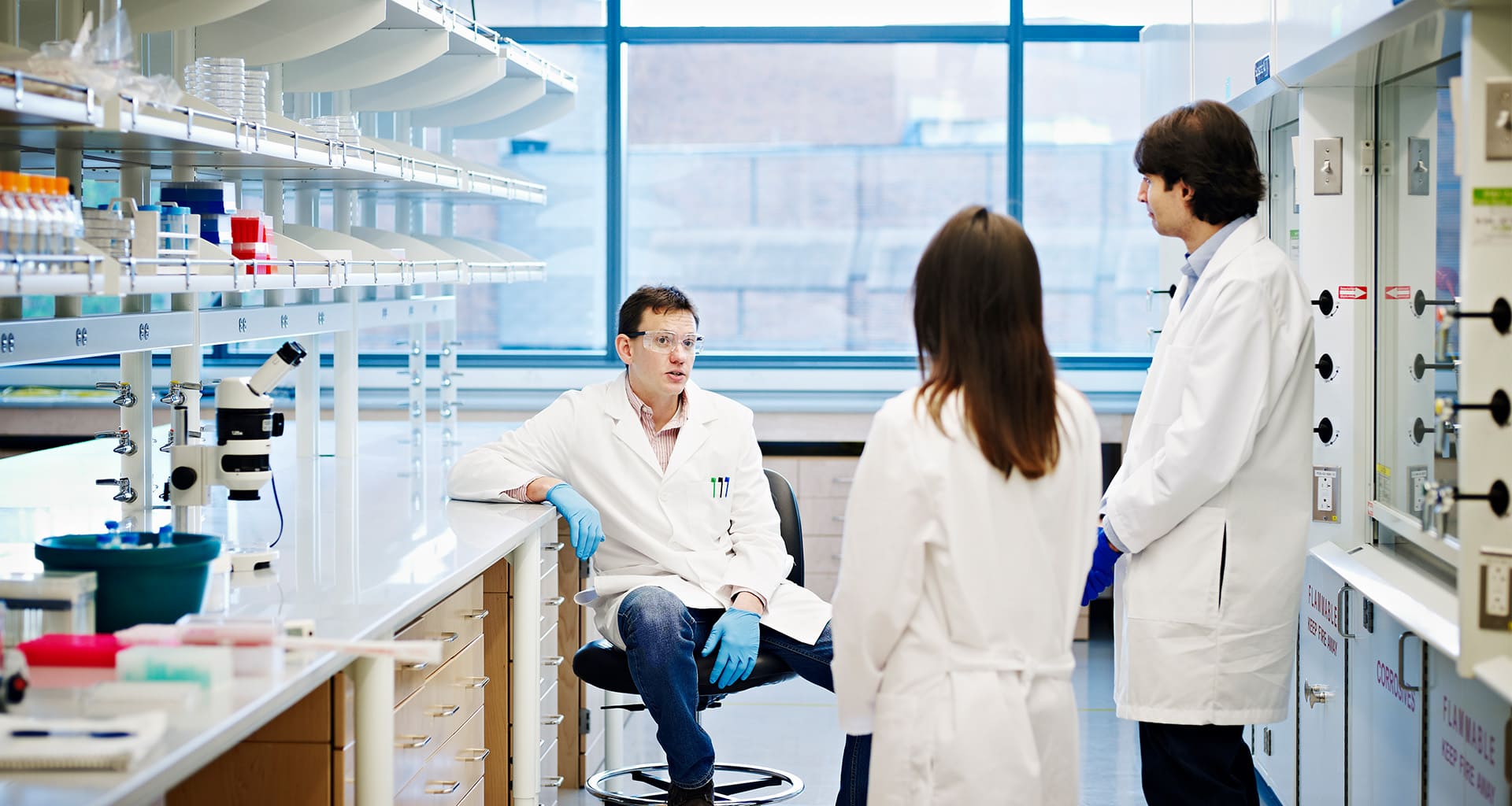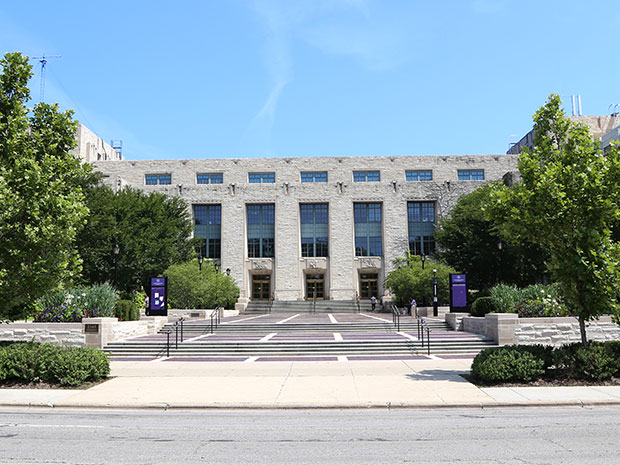Introduction
Cardiovascular health is a critical aspect of overall health and wellness. The heart and circulatory system are responsible for delivering oxygen and nutrients to the body’s tissues and organs, and any disruption to this process can have serious consequences. Cardiovascular diseases, including coronary artery disease, heart attacks, and strokes, are a leading cause of death worldwide.
Fortunately, advances in cardiology technology have made it possible to accurately diagnose and effectively treat many cardiovascular conditions. Cardiology technology has played a crucial role in advancing medical science and improving patient outcomes, from diagnostic tests like echocardiography and electrocardiography to innovative treatments like stem cell therapy and gene therapy.
For those interested in pursuing a career in cardiology technology, a Bachelor of Science (BS) in Cardiology Technology provides a solid foundation in the knowledge and skills needed to succeed in this field. Graduates with a BS in Cardiology Technology can make meaningful contributions to the field of cardiovascular health and help improve the lives of those affected by cardiovascular diseases.
Understanding BS Cardiology Technology

BS Cardiology
Technology is an undergraduate degree program that focuses on the study and application of technology in the diagnosis, treatment, and management of cardiovascular diseases. Students in this program learn about the anatomy and physiology of the heart, as well as diagnostic tests and treatment options for cardiovascular diseases.
The field of cardiology
Technology has a rich history dating back to the early 20th century, with the development of electrocardiography (ECG) as a diagnostic tool for heart disease. Over time, new technologies and techniques have been developed to improve the accuracy and effectiveness of cardiovascular diagnosis and treatment.
Today, BS Cardiology
Technology is an important discipline within modern healthcare. As cardiovascular diseases remain a leading cause of death worldwide, the demand for skilled professionals in this field continues to grow. Graduates with a BS in Cardiology Technology can pursue careers as cardiovascular technologists, echocardiographers, and other related roles.
To succeed in a BS Cardiology
In a technology program, students should have a strong foundation in biology, chemistry, physics, and mathematics. Additionally, they should possess strong critical thinking and problem-solving skills, as well as the ability to communicate effectively with patients and healthcare professionals.

Anatomy and Physiology of the Heart
The heart is a muscular organ that pumps blood throughout the body, and it is a vital component of the circulatory system. Here are some key points about the anatomy and physiology of the heart:
Structure of the heart:
The heart is located in the chest, and it is roughly the size of a closed fist. It is made up of four chambers, including the left and right atria and the left and right ventricles. The heart also has four valves that regulate blood flow between the chambers and blood vessels.
The function of the heart:
The heart’s primary function is to pump blood to all parts of the body. Oxygenated blood flows out of the heart through the aorta and is distributed to the body’s tissues, while deoxygenated blood returns to the heart through the veins to be pumped to the lungs for oxygenation. BS Cardiology Technology.
Blood vessels:
The circulatory system includes three types of blood vessels: arteries, veins, and capillaries. Arteries carry oxygenated blood away from the heart, while veins carry deoxygenated blood back to the heart. Capillaries are the smallest blood vessels and allow for the exchange of gases and nutrients between the blood and tissues.
Causes and risk factors for cardiovascular diseases:
Cardiovascular diseases are the leading cause of death worldwide. Risk factors for cardiovascular diseases include high blood pressure, high cholesterol, smoking, diabetes, obesity, and a sedentary lifestyle. Other factors, such as genetics, age, and gender, may also increase a person’s risk for cardiovascular diseases.
The heart is a vital organ responsible for pumping blood throughout the body. Understanding the structure and function of the heart, as well as the role of blood vessels in cardiovascular health, is critical to preventing and managing cardiovascular diseases.
Diagnostic Tests in Cardiology
Cardiology diagnostic tests play a critical role in identifying and managing cardiovascular diseases. Here are some of the most common diagnostic tests in cardiology:

Echocardiography:
This test uses sound waves to create images of the heart. There are different types of echocardiography, including transthoracic echocardiography (TTE), transesophageal echocardiography (TEE), and stress echocardiography. Echocardiography is useful for evaluating the structure and function of the heart, detecting abnormalities such as valve disease, and assessing heart function after a heart attack.
Electrocardiogram (ECG):
This test measures the electrical activity of the heart and is used to diagnose various heart conditions, including arrhythmias and heart attacks. During an ECG, electrodes are placed on the chest, arms, and legs to record the heart’s electrical activity.
Cardiac catheterization:
This is an invasive test that involves inserting a catheter into a blood vessel and threading it to the heart. It can be used to diagnose and treat a range of heart conditions, including blocked arteries, heart valve problems, and congenital heart defects.
Nuclear cardiology:
This type of imaging test uses small amounts of radioactive material to produce images of the heart. Nuclear cardiology can be used to assess blood flow to the heart, evaluate heart function, and detect areas of the damaged heart muscle.
Stress tests:
These tests are used to evaluate how well the heart functions during exercise or other forms of physical stress. There are different types of stress tests, including exercise stress tests, pharmacologic stress tests, and stress echocardiography.
Diagnostic tests in cardiology are crucial for identifying and managing cardiovascular diseases. Echocardiography, ECG, cardiac catheterization, nuclear cardiology, and stress tests are just a few of the many diagnostic tools available to healthcare providers to evaluate heart function and detect abnormalities.
Treatment Options for Cardiovascular Diseases
There are several treatment options available for cardiovascular diseases, including medication management, surgical procedures, innovative therapies such as stem cell and gene therapy, and lifestyle changes.
Medication management is a common approach to treating cardiovascular diseases. Medications such as statins, beta-blockers, and angiotensin-converting enzyme (ACE) inhibitors can be used to control blood pressure, lower cholesterol levels, and reduce the risk of heart attack and stroke.
Surgical procedures are also an option for treating cardiovascular diseases. Procedures such as angioplasty and stenting can be used to open blocked arteries and improve blood flow to the heart. Coronary artery bypass surgery can create new pathways for blood flow around blocked arteries.

Innovative therapies
Such as stem cell and gene therapy are emerging as potential treatments for cardiovascular diseases. Stem cell therapy involves using stem cells to repair damaged heart tissue and promote the growth of new blood vessels. Gene therapy involves modifying a patient’s genes to correct genetic defects that may contribute to cardiovascular disease.
Lifestyle
Lifestyle changes are also an important part of treating and preventing cardiovascular diseases. Adopting a healthy diet, exercising regularly, quitting smoking, and reducing stress can all help to improve cardiovascular health and reduce the risk of heart disease.
There is a range of treatment options available for cardiovascular diseases,
including medication management, surgical procedures, innovative therapies, and lifestyle changes. Healthcare providers work with patients to develop a personalized treatment plan that takes into account their unique needs and medical history, with the goal of improving cardiovascular health and reducing the risk of heart disease.
Emerging Trends in BS Cardiology Technology
There are several emerging trends in the field of BS Cardiology Technology that are shaping the future of healthcare. These trends include advancements in technology, personalized medicine, precision cardiovascular care, the integration of artificial intelligence and machine learning, and new research on the connection between oral health and cardiovascular disease.

Advancements in technology,
Such as wearable devices and remote monitoring, are transforming the way that healthcare providers diagnose and manage cardiovascular disease. Wearable devices such as smartwatches and fitness trackers can monitor a patient’s heart rate, blood pressure, and other vital signs, providing real-time data that can be used to detect and treat cardiovascular conditions early.
Personalized medicine and precision cardiovascular care are also emerging trends in the field of cardiology technology. These approaches use genetic and other biomarker data to tailor treatments to individual patients, taking into account their unique genetic makeup and other factors that may affect their risk of cardiovascular disease.
The integration of artificial
intelligence and machine learning in cardiology technology is another trend that is gaining momentum. These technologies can be used to analyze large datasets and identify patterns that may not be visible to the human eye, allowing healthcare providers to make more accurate diagnoses and develop more effective treatment plans.
Finally,
New research on the connection between oral health and cardiovascular disease is shedding light on the links between these two areas of health. Studies have shown that gum disease and other oral health issues may be linked to an increased risk of heart disease, highlighting the importance of maintaining good oral hygiene as a part of overall cardiovascular health.
The emerging trends in BS Cardiology
Technology is shaping the future of healthcare by providing new tools and approaches to diagnose, treat, and prevent cardiovascular disease. By embracing these trends and staying up-to-date with the latest advancements in the field, healthcare providers can provide high-quality care that is personalized, precise, and effective.
Ethical Considerations in Cardiology Technology
The use of cardiology technology raises several ethical considerations that healthcare professionals and researchers must take into account. These considerations include informed consent and patient autonomy, confidentiality, city and data security, and end-of-life decision-making in the context of cardiovascular diseases.
Informed consent and patient
Autonomy is crucial ethical consideration in cardiology technology. Patients have the right to be fully informed about the potential risks and benefits of any diagnostic or treatment procedures, as well as the right to make decisions about their own healthcare. Healthcare providers must ensure that patients have the information they need to make informed decisions about their care, and must respect their autonomy even if it means declining a recommended treatment.
Confidentiality and data
Security is also an important consideration in the use of patient health data in cardiology technology. Patients have the right to privacy and confidentiality when it comes to their health information. Healthcare providers and researchers must take steps to ensure that patient data is protected from unauthorized access or disclosure, and that it is only used for its intended purposes.
End-of-life decision-making is another ethical consideration in the context of cardiovascular diseases. Patients with advanced cardiovascular diseases may face difficult decisions about end-of-life care, including the use of life-sustaining interventions such as mechanical ventilation or cardiac resuscitation. Healthcare providers must respect patients’ wishes regarding end-of-life care, and ensure that they are fully informed about the potential benefits and risks of any interventions. BS Cardiology Technology
Ethical considerations are an important part of the use of cardiology technology in healthcare. Healthcare providers and researchers must prioritize patient autonomy, confidentiality, and data security, and ensure that end-of-life decision-making is respectful of patients’ wishes. By addressing these ethical considerations, healthcare professionals can provide high-quality care that respects the dignity and autonomy of their patients.
Career Opportunities in BS Cardiology Technology
Graduates with a BS in Cardiology
Technology has a wide range of career opportunities available to them. They can work in hospitals, clinics, private practices, and research institutions, among other healthcare settings. Some job opportunities in cardiology technology include cardiovascular technologists, echocardiographers, electrocardiogram (ECG) technicians, and exercise physiologists.
According to the U.S. Bureau of Labor Statistics,
The median annual salary for cardiovascular technologists and technicians is $59,410. The job outlook for graduates with a BS in Cardiology Technology is also positive, with a projected 7% growth in employment from 2019 to 2029.
Continuing education and professional development opportunities are also available to those in the field of cardiology technology. Many employers offer training and development programs to help their employees stay up-to-date with the latest technologies and techniques. Additionally, professional organizations such as the American Society of Echocardiography and the Cardiovascular Credentialing International offer certification programs and continuing education courses for cardiology technologists and other healthcare professionals.
A BS in Cardiology
Technology can lead to a variety of job opportunities in healthcare, with a positive job outlook and competitive salaries. Graduates can also continue to grow and develop in their careers through continuing education and professional development opportunities offered by their employers and professional organizations.

Future Directions in Cardiology Technology
The field of cardiology
Technology is poised for continued growth and innovation in the coming years. Rapid advancements in technology are enabling healthcare professionals to diagnose and treat cardiovascular diseases with greater precision and effectiveness than ever before. As a result, we can expect to see exciting new developments in several areas of research.
One emerging area of research in cardiology
Technology is the use of artificial intelligence (AI) and machine learning to improve the accuracy of cardiac imaging and analysis. By leveraging AI algorithms, healthcare providers can quickly and accurately diagnose heart conditions and develop personalized treatment plans for patients.
Another area of research is the development of novel technologies for non-invasive cardiac monitoring. Wearable devices, such as smartwatches and biosensors, can collect data on a patient’s heart rate, blood pressure, and other vital signs in real time. This data can be analyzed to identify early warning signs of cardiovascular disease and develop preventative treatment plans.
The future of healthcare and cardiovascular disease management will be greatly impacted by these and other advancements in cardiology technology. We can expect to see more personalized and targeted treatments for heart conditions, as well as improved patient outcomes and quality of life. As technology continues to evolve, it will be increasingly important for healthcare professionals to stay up-to-date with the latest developments and advancements in cardiology technology in order to provide the best possible care for their patients.
Conclusion
A BS Cardiology Technology is a degree program that focuses on the technical aspects of diagnosing and treating heart conditions using advanced technologies. The program requires a strong foundation in science and math, an aptitude for technology, attention to detail, and critical thinking skills. Graduates can work in a variety of healthcare settings and may hold specialized roles such as cardiovascular technologists or echocardiographers. The median annual salary for cardiovascular technologists and technicians in the United States is $59,410.
BS Cardiology technology plays a crucial role in advancing medical science and improving patient outcomes. With continued advancements in technology, we can expect to see even more sophisticated tools and techniques being developed to diagnose and treat heart conditions. This will require ongoing education and training for those in the field of cardiology technology, as well as collaboration with other healthcare professionals. BS Cardiology Technology
A BS in Cardiology Technology is an important degree program that prepares graduates to work in a critical area of healthcare. With the increasing prevalence of heart disease and related conditions, the need for qualified and skilled professionals in this field is likely to continue to grow in the future. As technology continues to advance, we can expect to see even more exciting developments in the field of BS cardiology technology.
FAQs
What is the difference between a BS Cardiology Technology and a degree in nursing or medicine?
The main difference between a BS Cardiology Technology and a degree in nursing or medicine is the focus of the program. A BS in Cardiology Technology focuses specifically on the technical aspects of diagnosing and treating heart conditions using advanced technologies, while nursing and medicine programs have a broader focus on patient care and treatment. Nursing programs train students to provide direct care to patients, while medical programs train students to diagnose and treat a wide range of medical conditions.
How long does it take to earn a BS Cardiology Technology?
The length of time it takes to earn a BS Cardiology Technology varies depending on the program and the student’s pace of study. Typically, it takes around four years of full-time study to complete the degree.
What kind of job can I get with a BS in Cardiology Technology?
Graduates with a BS Cardiology Technology can work in a variety of healthcare settings, including hospitals, clinics, and private practices. They may work as cardiovascular technologists, echocardiographers, or other specialized roles in cardiology.
How much can I earn with a BS Cardiology Technology?
The salary for graduates with a BS Cardiology Technology varies depending on their specific job and location. According to the Bureau of Labor Statistics, the median annual salary for cardiovascular technologists and technicians in the United States is $59,410.
Is a BS Cardiology Technology the right degree for me if I want to pursue a career in cardiology research?
A BS in Cardiology Technology may be a good degree for those interested in pursuing a career in cardiology research, but additional education and training may be necessary. Students interested in this career path may consider pursuing a graduate degree in a related field, such as cardiovascular science or biomedical engineering.
What are the most critical skills and knowledge required to be successful in a BS Cardiology Technology program?
The most critical skills and knowledge required to be successful in a BS Cardiology Technology program include a strong foundation in science and math, an aptitude for technology, attention to detail, and critical thinking skills. Students should also have excellent communication and interpersonal skills to work effectively with patients and healthcare teams.
How can I find the best BS Cardiology Technology program for me?
To find the best BS Cardiology Technology program for you, consider factors such as the program’s accreditation, reputation, curriculum, and resources available to students. It is also important to consider the program’s location, cost, and whether it offers opportunities for internships or other hands-on experience. Researching and comparing several programs can help you make an informed decision.



